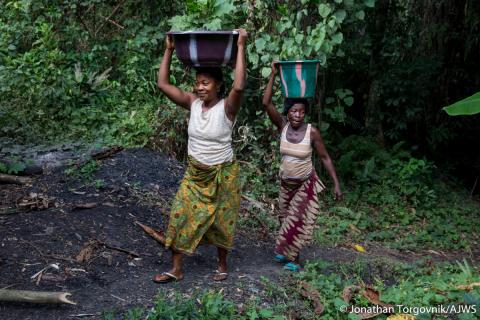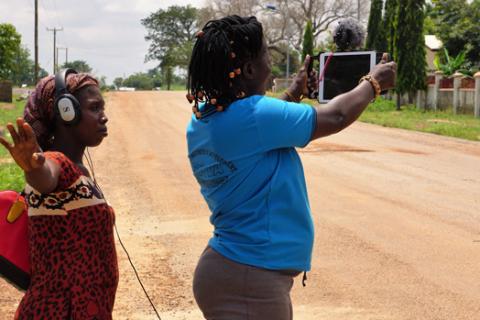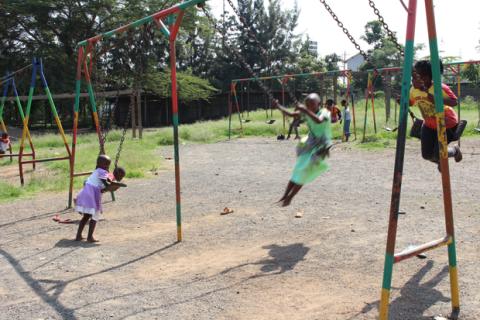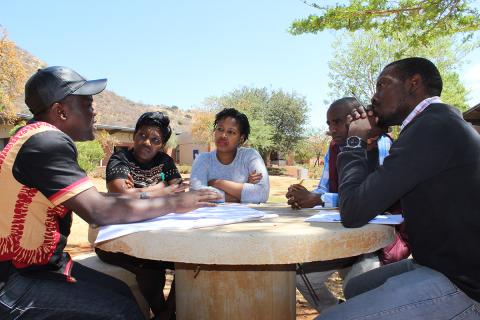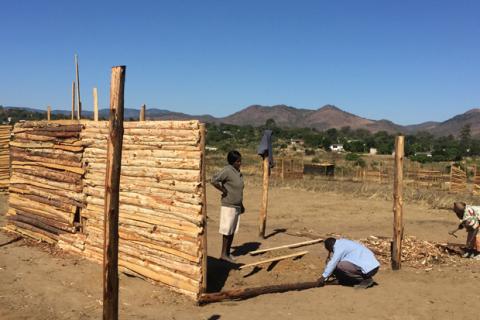
Topics and Regions
Gareth Benest is a communications and participatory media specialist working with groups and communities around the world. Gareth provides consultancy services for organisations across the international development sector, with particular focus on supporting community-led storytelling. His work aims to increase the visibility of under-represented groups and provide opportunities and platforms for marginalised groups to amplify their own voices.
Gareth has a diverse skillset - including facilitation, video production/post-production, copy-writing/editing and graphic design - and an established track record for programme development, project management, capacity-building and training. He has written three guidebooks, covering various aspects of participatory video practice, based on two decades of work with communities and stakeholders around the world.
Details
Affiliation:
Website
Location
Contributions
Displaying 31 - 40 of 45Seeking consultant to conduct mid-term review of TI's Women, Land and Corruption in Africa Project
Application Closing Date - 12 Mar 2017
Job Start Date - 05 Apr, 2017
Duration - 5 April to 27 April 2017
Location - Remote
Transparency International (TI) is the global civil society organisation leading the fight against corruption. Through more than 100 chapters worldwide and an international secretariat in Berlin, Germany, TI raises awareness of the damaging effects of corruption and works with partners in government, business and civil society to develop and implement effective measures to tackle it.
Gender-responsive work on land and corruption
Land corruption affects women and men, but the impact is experienced differently by each gender. Packed with practical advice, this guide, produced by Transparency International, will help organisations understand these differences in order to design advocacy programmes that are both inclusive and effective.
Women’s Groups Are Turning To Timby
Since 2013, groups have been using TIMBY to document issues such as land tenure, environmental conservation and corruption. We are excited that TIMBY is helping elevate the voices of communities in decision-making about their land; it’s a first step in creating equitable land rights discussions both locally and globally. But we’ve noticed that TIMBY isn’t always being used in an equal and fair way with respect to gender: the reporters in early TIMBY projects were almost all men.
Transparency International calls for corruption-free land governance
At a recent meeting in Panama City representatives from more than 110 Transparency International chapters and members unanimously adopted a resolution calling for corruption-free land governance worldwide.
Around the world, one in five people report that they have paid a bribe for land services; but in Africa, every second client of land administration services is affected.
Anti-corruption training for Africa’s urban planners launching early 2017
By 2050 four out of every five people could be living in towns and cities. Urbanization can drive development and improve lives, but it can also have a debilitating impact when corruption is involved.
Transparency International looking for a consultant to develop course for journalists investigating land corruption in sub-Saharan Africa
- Application Closing Date - 04 Dec 2016
- Job Start Date - As soon as possible
- Duration - Estimated duration of this consultancy until April 2017
- Pay Scale - Budget 8,000 €
- Location - Remote
Land corruption eroding women’s rights in Ghana
In Ghana, land is an indispensable asset. It’s a source of livelihood and social identity, and men and women should have equal opportunities to benefit from it. But when entrenched patriarchy tips the power scales, and corruption reinforces cultural norms, the impact on women can be devastating.
A recent survey reveals that one in three Ghanaians have been asked to pay a bribe for land-related services in recent years. The study was done by the Ghana Integrity Initiative, the local chapter of Transparency International in Ghana.
Hands off our playground: securing land rights for Kenyan schools
It was December and the school grounds were empty. Students and staff of Langata Road Primary School in Nairobi were home for the holidays, enjoying the break from lessons during the hot, sticky days.
At first no one noticed when builders moved onto the property with bricks and cement. Within two days they had built an impenetrable wall around the playground, cutting off the school buildings from the large grassy spot where students once played on the swings.
Young Changemakers using tech to solve land corruption
Fifteen bright young minds from Malawi, Namibia, South Africa, Zambia and Zimbabwe came together recently to brainstorm innovative solutions to combat land corruption affecting their communities.
Participants were brought to South Africa for an intensive three-day workshop, where they were mentored by leading social entrepreneurs and encouraged to develop solutions to boost integrity in the land sector, with an emphasis on cross-border collaboration. The four best projects to come out of this initiative will win seed grants to so they can be developed further.
Urban land in Zimbabwe: where power, politics and corruption meet
By Mary Jane Ncube, Farai Shone Mutondoro and Manase Chiweshe
As political parties gear up for the 2018 national elections in Zimbabwe, urban land appears to be emerging as an important campaigning tool for ruling party Zanu PF.
Amid recent mass public protests against corruption, economic decline and an import ban on basic commodities, young people who showed loyalty to the party werepromised land.




